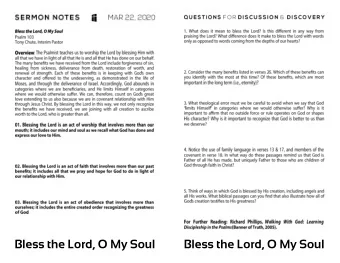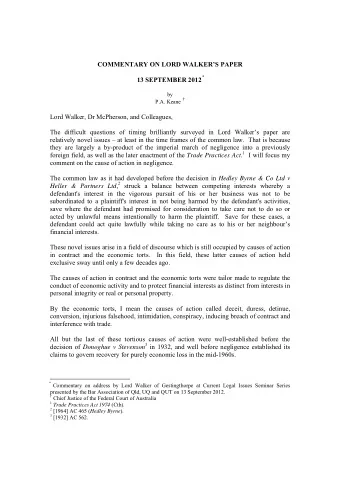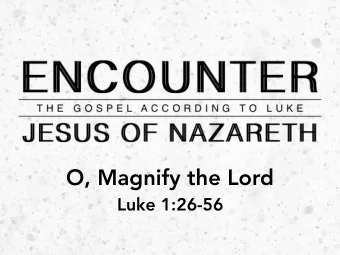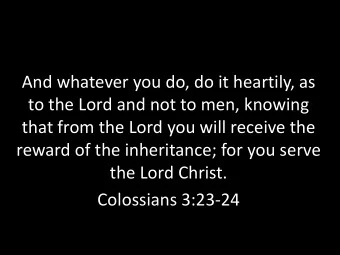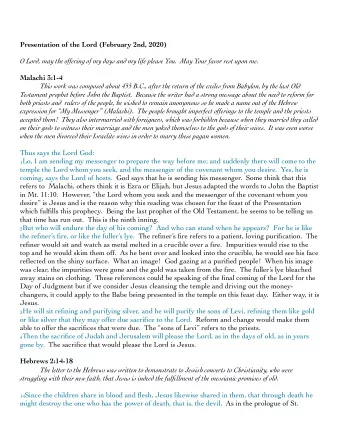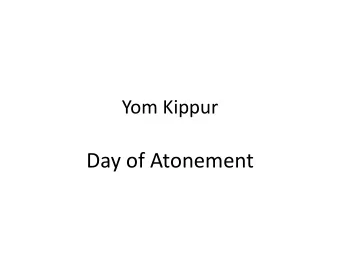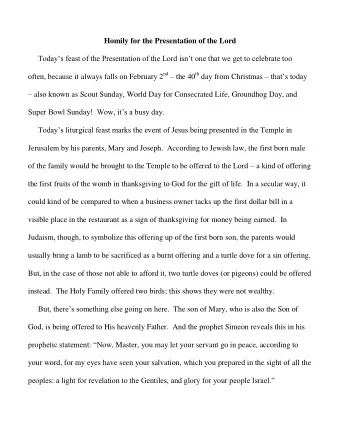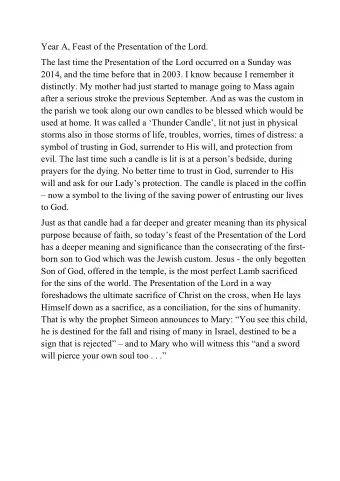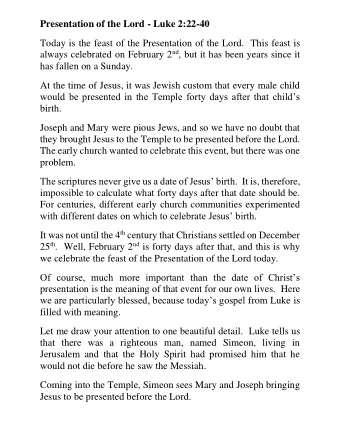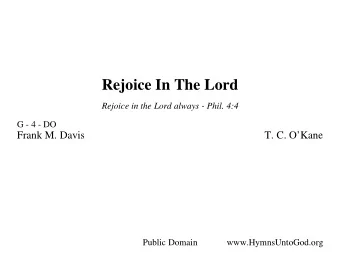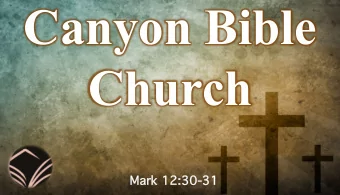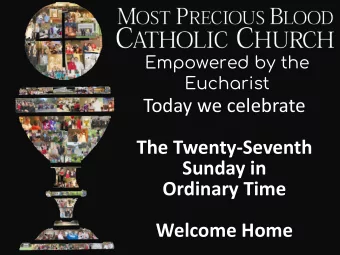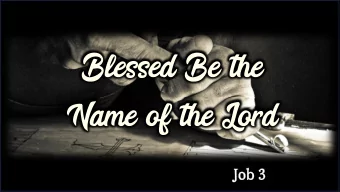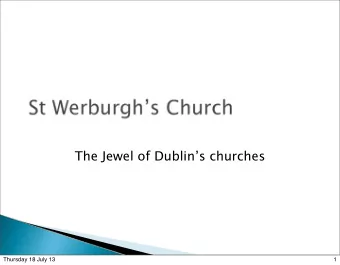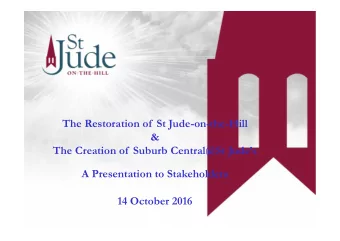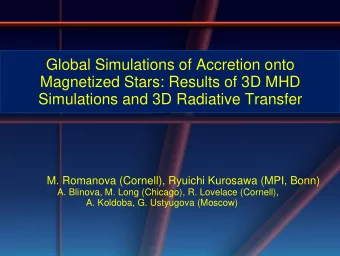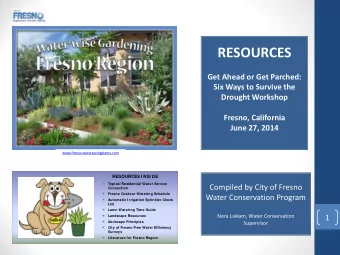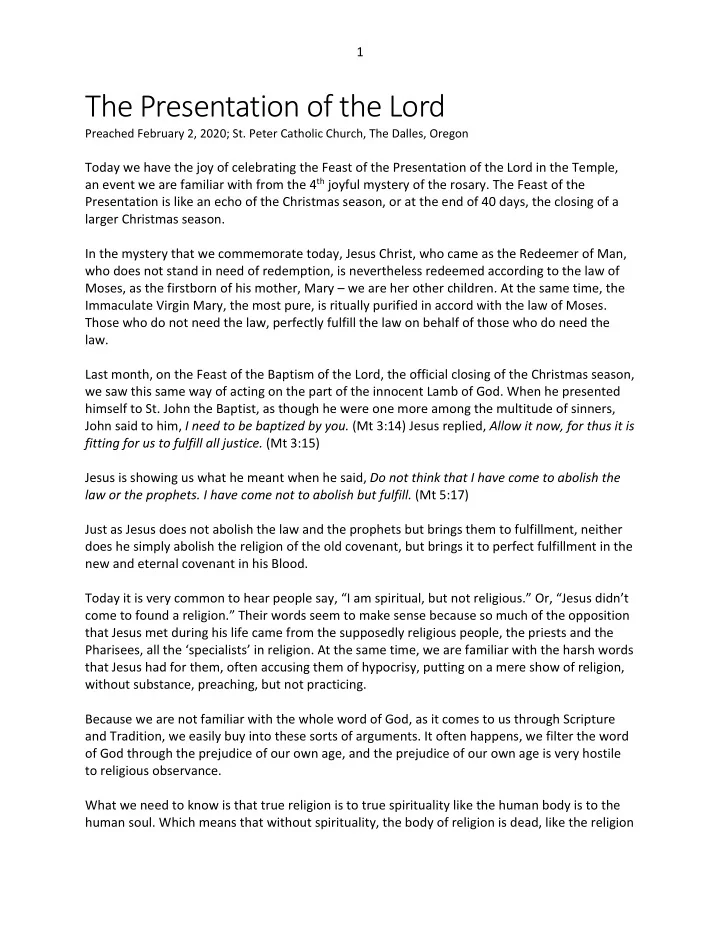
The Presentation of the Lord Preached February 2, 2020; St. Peter - PDF document
1 The Presentation of the Lord Preached February 2, 2020; St. Peter Catholic Church, The Dalles, Oregon Today we have the joy of celebrating the Feast of the Presentation of the Lord in the Temple, an event we are familiar with from the 4 th
1 The Presentation of the Lord Preached February 2, 2020; St. Peter Catholic Church, The Dalles, Oregon Today we have the joy of celebrating the Feast of the Presentation of the Lord in the Temple, an event we are familiar with from the 4 th joyful mystery of the rosary. The Feast of the Presentation is like an echo of the Christmas season, or at the end of 40 days, the closing of a larger Christmas season. In the mystery that we commemorate today, Jesus Christ, who came as the Redeemer of Man, who does not stand in need of redemption, is nevertheless redeemed according to the law of Moses, as the firstborn of his mother, Mary – we are her other children. At the same time, the Immaculate Virgin Mary, the most pure, is ritually purified in accord with the law of Moses. Those who do not need the law, perfectly fulfill the law on behalf of those who do need the law. Last month, on the Feast of the Baptism of the Lord, the official closing of the Christmas season, we saw this same way of acting on the part of the innocent Lamb of God. When he presented himself to St. John the Baptist, as though he were one more among the multitude of sinners, John said to him, I need to be baptized by you. (Mt 3:14) Jesus replied, Allow it now, for thus it is fitting for us to fulfill all justice. (Mt 3:15) Jesus is showing us what he meant when he said, Do not think that I have come to abolish the law or the prophets. I have come not to abolish but fulfill. (Mt 5:17) Just as Jesus does not abolish the law and the prophets but brings them to fulfillment, neither does he simply abolish the religion of the old covenant, but brings it to perfect fulfillment in the new and eternal covenant in his Blood. Today it is very common to hear people say, “I am spiritual, but not religious.” Or, “Jesus didn’t come to found a religion.” Their words seem to make sense because so much of the opposition that Jesus met during his life came from the supposedly religious people, the priests and the Pharisees, all the ‘specialists’ in religion. At the same time, we are familiar with the harsh words that Jesus had for them, often accusing them of hypocrisy, putting on a mere show of religion, without substance, preaching, but not practicing. Because we are not familiar with the whole word of God, as it comes to us through Scripture and Tradition, we easily buy into these sorts of arguments. It often happens, we filter the word of God through the prejudice of our own age, and the prejudice of our own age is very hostile to religious observance. What we need to know is that true religion is to true spirituality like the human body is to the human soul. Which means that without spirituality, the body of religion is dead, like the religion
2 of the hypocritical Pharisees and the corrupt priests. But without the body of religion, spirituality has no more place in this world than a disembodied soul, at best a ghost. Spirituality without religion is reduced to a purely private affair of the heart. Each one then has his own ‘spirituality’ and there is nothing to unite them. Jesus, the Word made flesh, the Son of God made man, gives us the united body and soul of true spirituality and true religion. In his sacred humanity Jesus is the one whom the Father anointed with the fulness of the Holy Spirit to be poured out upon those who believe in him. (Jn 1:14,16, 32) He is thus the source of true spirituality. There is no life in the Spirit without faith in Jesus Christ. At the same time, he is the one who baptizes with the Holy Spirit. (Jn 1:33) This baptism with the Holy Spirit is not something separate from baptism with water, but is accomplished through baptism with water, a religious ritual, as Jesus himself made clear when he said: No one can enter the kingdom of God without being born of water and Spirit. (Jn 3:5) Baptism is the beginning of the bodily observance of the Christian religion, founded by Jesus Christ. It is also the entrance into the life of grace, which is the soul of the Christian religion. The celebration of the Holy Eucharist is the culmination of the bodily observance of the Christian religion, founded by Jesus Christ. It is also the nourishment of the life of grace. In the hypocritical Pharisees and the corrupt priests of Jesus’ time we see the corruption of Old Testament religious practice, both among the priests and the laity (represented by the Pharisees). Nevertheless, the religion of the Old Testament comes to fruition in today’s mystery, receiving and offering Jesus Christ, the Son of God made man in the Temple of Jerusalem. Today, we also see the finest fruit of Old Testament religious observance in Anna, Simeon, Joseph, and Mary. In the background we should remember also Zechariah, the priest, and his wife Elizabeth (the Old Testament priesthood was passed on by physical generation from father to son); they are the parents of St. John the Baptist and are praised in the Gospel as being just in the eyes of God, observing all the commandments and ordinances of the Lord blamelessly. (Lk 1:6) Now, let us consider the example of religion given us by the holy men and women we meet in today’s Gospel. There is Anna, the prophetess. She had married in accord with the law, but after the premature death of her husband, she did not seek pleasure. Instead, as we learn today, dedicated herself to the worship of the Lord in the Temple, with religious observance of fasting and prayer. Her religious worship in the Temple was not deterred or impeded by the corruption of the priests serving in the Temple – though Zechariah reminds us that not all the priests were corrupt.
3 We can further affirm that her gift of prophecy from the Holy Spirit, a gift that enabled her to recognize the child Jesus as the Christ, the Messiah, the Anointed One of God, was fruit of her religious observance. Next there is Simeon, who is characterized as righteous and devout or we could say “just” and “God-fearing”. To be truly devout or God-fearing is the characteristic of the person whose outward religious observance is not an empty show, but the outward radiance of his inward devotion. For the beginner in religion, the outward observance helps to form the soul in the spirit of devotion and the fear of God, but for the one who has truly advanced in the practice of religion, the outward observance becomes the natural expression of his person. Simeon is also characterized as “righteous” or “just”. We can think here of the oft misunderstood words of St. James: Religion that is pure and undefiled before God and the Father is this: to care for orphans and widows in their affliction and to keep oneself unstained by the world. (Jm 1:27) St. James is not here rejecting religious observance, but talking about the fruit of true religious observance: innocence of life and care for those in need. This is set in contrast to vanity of those who engage in religious practices but do not bridle their tongues, who speak much, but do little, who are careless in their speech, boastful, and given to gossip. (cf. Jm 1:26) Simeon, however, was a man who was discreet in speech, innocent in his life, and generous to the poor and those in need. He too was guided by the Holy Spirit and blessed with seeing the child Jesus and taking him in his arms before completing the course of his life. Finally, we have Joseph the Just and Mary the Immaculate; the blessed among woman, blessed to become the Mother of God, and the man to whom God entrusted the care of his most precious treasures. The holiness and beauty of their souls far exceeds anything we can conceive or imagine. What we need to know here, however, is that they are shown to be faithful in their observance of the law of Moses, the specifically religious prescriptions of the law of Moses. We should note also that it was not just these four; there were many other devout and religious souls in the Temple that day – undeterred by the corruption of the priesthood – many who saw Simeon take Jesus in his arms, many who listened to the words of Anna. Just as also there were many outside praying at the hour of the evening incense offering, when the priest Zechariah went into the Temple, met the angel Gabriel standing by the altar of incense, and learned of the coming birth of John the Baptist. (cf. Lk 1:8-10) None of us can compare even with Simeon and Anna, but we have been given a much greater gift in the Christian religion, the religion of the seven sacraments and of the seven gifts of the Holy Spirit. We are not just allowed to receive Jesus in our arms for a passing moment, but to take part in his redeeming sacrifice and receive his Body and Blood in holy communion.
4 We must not be deterred from the practice of our religion, even if we meet with a corrupt priesthood and hypocritical religious leaders. Indeed, in the time of Jesus there were those whose religion was empty and vain, but also those who were truly just and devout in their observance and their whole life. So also today, in the Catholic Church, there are those who are empty and vain in their observance, like the five foolish virgins in the parable, and there are those who are truly just and devout, like the five wise virgins, both spiritual and religious. They are truly spiritual because they are truly religious, truly religious because the Holy Spirit, from Jesus, is active in their lives. They do not just have candles in their hands, but they have the life of grace in their souls, which shines in their words and deeds, both in church and outside. They have become like Christ, the light of the world.
Recommend
More recommend
Explore More Topics
Stay informed with curated content and fresh updates.
